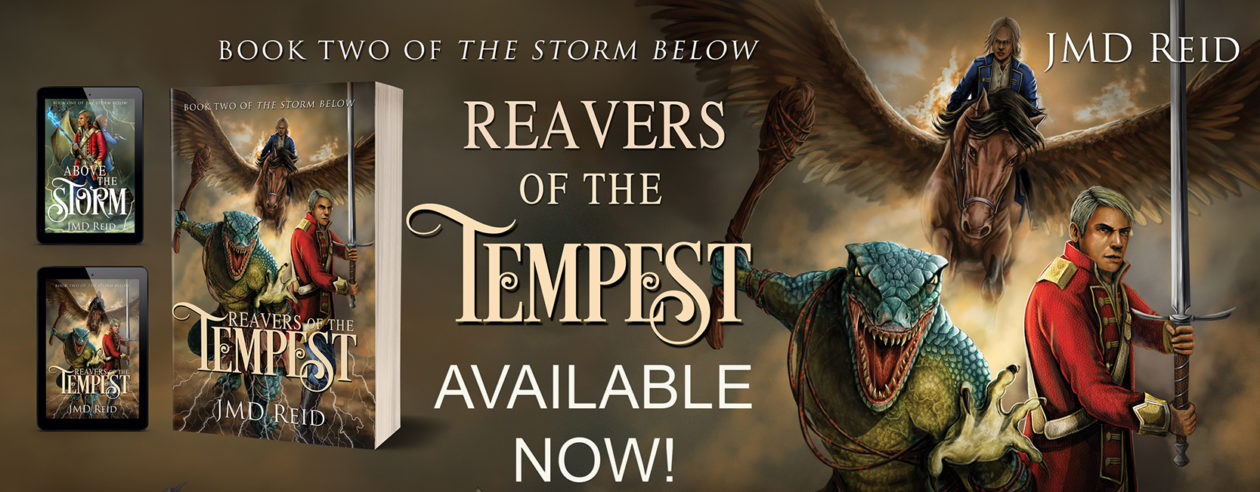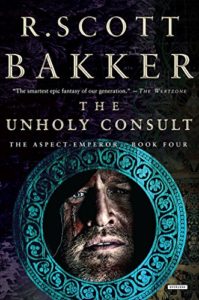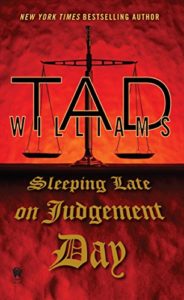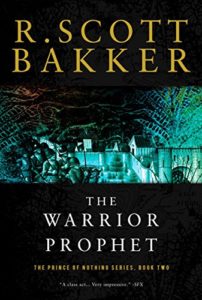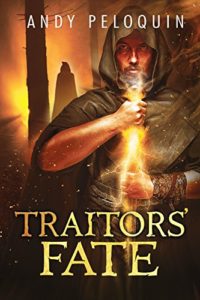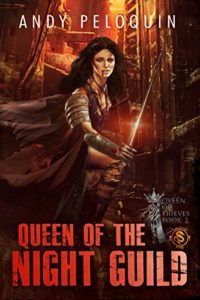Reread of Prince of Nothing Trilogy
Book 3: The Thousandfold Thought
by R. Scott Bakker
The Final March
Chapter 5
Jocktha
Welcome to Chapter Five of my reread. Click here if you missed the Chapter Four!
To indulge it is to breed it. To punish it is to feed it. Madness knows no bridle but the knife.
—SCYLVENDI PROVERB
When others speak, I hear naught but the squawking of parrots. But when I speak, it always seems to be the first time. Each man is the rule of the other, no matter how mad or vain.
—HATATIAN, EXHORTATIONS
My Thoughts
An interesting pair of quotes. The first one is a rather bleak view on madness. And there’s truth in it. People who allow their delusions to be entertained can only sink deeper and deeper into them, to see them multiplied. This can lead them to be forever lost. Any attempts to snap them out, to punish them for their delusions, only feeds them. Then, in the unflinching fashion of the Scylvendi, the only option to control it is to kill the mad person.
Perhaps a proverb Kellhus should have ruminated about. Conphas and Cnaiür are both mad, and they are both beyond Kellhus’s ultimate control. Cnaiür’s madness keeps him from ever enacting Kellhus’s orders to kill Conphas and nothing short of death can curtail Conphas’s sociopathic narcissism.
Now the second quote speaks to the fact that we’re all narcissistic to some extant (see Conphas and the slave girl in this chapter). We’ve all had that impatient annoyance while listening to someone talk about what you don’t care about while at the same time you’re just eager to tell them what’s important to you (but something they won’t care about). That impulse we have to feel like everything we do has importance fills us. It’s an illusion to keep us going during times of banality. So is Bakker saying we are all mad and therefore the only way to fully control us is with the knife.
Is with power. Force.
“Political power grows out of the barrel of a gun,” said Mao. There’s a great deal of truth in that statement.
Early Spring 4112 Year-of-the-Tusk, Jocktha
Conphas cannot shake Kellhus’s words, “For some it is a defect carried from the womb.” The feeling, like a bruise on his soul, is a new one for him. He doesn’t understand it or the words Kellhus spoke. While he’s ruminating over it, his army is disarmed. While no incidents happened, it still aggravates Conphas since his normally disciplined men found trouble following basic orders. In the end they looked like “an assembly of half-starved beggars.”
Proyas then calls on any who wish to follow the Warrior Prophet to step forward. After a pause, the first deserters step does. Conphas fears he’ll lose most of his men, but less than a fifth switch sides. He’s ecstatic while Proyas is vexed and castigates the loyal men. They shout that they follow the Lion. Proyas retreats in a fury while Conphas revels in it and “the bruise of his indignities began to fade.” He’s even happier when he learns that he won’t have to march back to Momemn through the desert but that contact was made, via the Scarlet Spire, with his uncle. A fleet of ships will come to Joktha to pick them up.
No matter who threw the number-sticks, it seemed, he [Conphas] owned the results.
Nothing happens on the march to Joktha, which he spent riding lost in thought. His staff holds their distance, only interacting with Conphas when he asks them questions like, “What man doesn’t aspire to godhead?” They answer all man then say only the boldest would voice it. Conphas knows they are being sycophants saying what he wants to hear. Conphas normally hates that since “no command could tolerate sycophants.” He finds himself indulging it since after all he was a defect and not quite human.
The strange thing was that he understood full well what the man had meant. His entire life, Conphas had known he was different. He never stammered in embarrassment. He never blushed in the presence of his betters. He never minced his words with his worries. All around him, men jerked this way and that, pulled by hooks that he knew only by reputation: love, guilt, duty… Though he understood how to use these words well enough, they meant nothing to him.
And the strangest thing of all was that he didn’t care.
Listening to the vain flattery, Conphas realized that his belief didn’t matter, only results. Logic and fats don’t mattered, only their connection to belief and desire. “If it pleased him to think himself divine, then so he would think.” He could do anything if he believed it. So it doesn’t matter what Kellhus does to the world, he’ll just adjust to make it right again. It didn’t matter if he was deformed or if the Consult was real. “It simply did not matter if he did not care.” He’s a unique soul that the world bends around.
“The fiend couldn’t attack you outright,” General Sompas ventured, “not without risking more bloodshed, more losses.” The caste-noble raised a hand against the sun to look directly at his Exalt-General. “So he heaped infamy on your name, kicked dirt across your fire, so that he alone might illumine the councils of the great.”
Even though he knew the man simply flattered him, Conphas decided that he agreed. He told himself that the Prince of Atrithau was the most accomplished liar he’d ever encountered—a veritable Ajolki! He told himself that the Council had been a trap, the product of thorough rehearsal and painstaking premeditation.
So he told himself, and so he believed. For Conphas, there was no difference between decision and revelation, manufacture and discovery. Gods made themselves the rule. And he was one of them.
By the time he reaches Jocktha, the pain of Kellhus’s words have vanished and he believes arriving here is his own will. He surveys the city when he first spies it. The city isn’t built on a defensive spot but beside a natural harbor. He spies the Donjon Palace built on “hazy heights.” They ride through a grove of peppertrees, the fragrance reminding Conphas of his time as Skauras’s hostage. He wants to hold onto those memoirs since “a captive had to always recall those he had mastered, lest he become one of them.” It’s another of his grandmother’s lessons.
The 300 Conryian knights awaiting him don’t bother him, but seeing Cnaiür does. He’s shocked and wonders why Kellhus chose Cnaiür. General Sompas objects, but Conphas says they are just trying to antagonize him into breaking the conditions of his freedom. Sompas starts to objects but swallows it, annoying Conphas. He remembers how Martemus never hesitated because he never feared Conphas. “Perhaps Sompas was the smarter man.” Sompas thinks they are being humiliated by having to submit to a Scylvendi. After reflection, Conphas thinks Kellhus is doing them a favor. Sompas doesn’t understand.
“Of course. He’s returned to me my most precious possession.”
The fool could only stare.
“My men. He’s returned to me my men. He’s even culled them for me.”
“But we are disarmed.”
Conphas looked back at the great train of beggars that was his army. They looked shadowy in the dust, at once dark and pale, like a legion of wraiths too insubstantial to threaten, let alone harm.
Perfect.
He glanced one last time at his General. “Hold on to your worries, Sompas…” He turned back to the Scylvendi, raising his hand in the mockery of a salute. “Your dismay,” he muttered askance, “lends the stamp of authenticity to these proceedings.”
Cnaiür thinks he’s forgetting something as he studies cracks in the marmoreal paving stones. He thinks only an Utemot Chieftain would allow such defects to be shown and not covered. He feels like he did just waking up at Kiyuth as he remembers meeting Conphas last night, how they’d argued, how Conphas tried to provoke him. As he does, Cnaiür struggles to remember who is he.
He starts dreaming he’s walking towards Shimeh, though it looks like the camp of his youth. As he passes through the yurts, he sees all the Utemot as dead and rotting. “They watched him with the parchment eyes of the dead.” He passes his livestock butchered. He’s not surprised. Before the White Yaksh, which he sees as the heart of Shimeh, he finds his feather’s head impaled on a spear. Inside he finds Moënghus has “made a harem of his wives.” He isn’t shocked or angry even as he beats Serwë, Anissi, the others. Their blood unnerves him.
Moënghus looked up from his passion and grinned a broad and welcoming grin. The Ikurei still lives, he said. Why don’t you kill him?
“The time… the time…”
Are you drunk?
“Nepenthe… All that the bird gave to me…”
Ah… so you yearn to forget after all.
“No… not forget. Sleep.”
So why not kill him?
“Because he wants me to.”
The Dûnyain? You think this is a trap?
“His every word is a feint. His every look a spear!”
Then what’s his intent?
“To keep me from his father. To deny my hate. To betray—”
Dream Moënghus points out if Cnaiür kills Conphas, he’s free to go after the Holy War. Cnaiür comes awake and realizes he’s been talking to the Synthese. It cries at him to avenge his People for the Battle of Kiyuth.”
I’m forgetting something.
Days pass. At night, Cnaiür lies with “Serwë” while he tries to understand his circumstances. He needs to deal with Conphas and his soldiers. He has 428 men. They’re outnumbered, but are battle-hardened. They’re not happy about being left behind, so Cnaiür focuses their anger at the Nansur and Conphas. He needs them to be as aggressive as possible. Baron Sanumnis, in charge of the Conryians, is worried. Cnaiür says since Nansur can defeat them “we must strip their will from them.” Cnaiür needs to cow the soldiers before murdering Conphas.
Cnaiür segregates Conphas soldiers, keeping the veterans from the younger ones and making them form camps far enough away from fresh water to keep them busy carrying it to their camp. He has the cavalry units dispersed among the infantry, using the “mutual enmity” between them to help keep unit cohesion down. He orders rumors that Conphas weeps and their officers objected to eating the same rations as the common soldiers. These were “the kinds of rumors that gnawed at every army’s heart.” Conphas is not allowed to leave the city or visit his men, but is allowed to move freely within the walls while Cnaiür “obsessively pondered the man’s murder.” Cnaiür understands the reasons both why he’s chosen and why Conphas has to die (can’t tolerate rivals and he’s the savage Scylvendi).
What tormented him [Cnaiür] was what these understandings implied. If murdering Moënghus was Kellhus’s sol mission, then preserving the Holy War should be his sole concern. Why assassinate Conphas when he need only remove him from the game—as he had? And why use Cnaiür to conceal his involvement, when the consequences—open war with the Empire—would have no bearing on the imminent conquest of Shimeh?
And Cnaiür realized… There was no way around it: the Dûnyain was looking behind the Holy War—past Shimeh. And to see past Shimeh was to see past Moënghus.
Cnaiür assumed he and Kellhus were on a hunt as “a collusion of enemies in pursuit of a greater foe.” Now he’s realizing it’s different. He feels it is a slave collar bent around the entire world with Kellhus and Moënghus at either ends.
He starts to get paranoid, often studying Trinemus and Sanumnis, the two lords with him, wondering if they had secret orders, especially since Trinemus defers to Sanumnis who only seems to watch. He thinks they will arrest him for murdering Conphas, the pair ready to act.
I’ve been sent to murder myself. The thought made Cnaiür cackle. Small wonder Proyas had been so unnerved relaying the Dûnyain’s murderous instructions.
Cnaiür takes the Scarlet Schoolman Sanumnis assigned to him to keep in constant communication with the Holy War as more proof. He is beset on all sides by “mad, unfathomable depths.” Cnaiür orders the Schoolman to study Conphas and his retinue while Cnaiür strides into them, showing off all his Swazond and boasting about killing them. Conphas retorts, starting to boast about how many Scylvendi he raped at Kiyuth when Cnaiür hits him hard. He disarms a Nansur coming to Conphas aid and starts beating the poor man while Trinemus’s soldiers come to hold the rest off. Cnaiür shouts at the Nansur that they will heed him.
“Do not,” Cnaiür said, raising his great banded arms, “Make me the ledger of your folly.”
They shrink like children from him. He then asks which one is the sorcerer. Sanumnis points him out. Cnaiür pulls out his Chorea. The hidden Imperial Saik tries to flee but he is killed by Cnaiür’s Chorae. Cnaiür strides away, marching past the cringing Conphas, not saying a word because “one did not trade words with whipped dogs.” Cnaiür knows this is all posturing, but he learned how important this is from Kellhus.
Later, he rants in his apartments. It never occurred to him that Conphas could have a secret sorcerer with him until Sanumnis arrived. He grows more paranoid, believing he is surrounded by enemies, including Proyas in that group.
He sent me to murder myself!
Cnaiür gets drunk to blunt “the spears that lay hidden beneath every surface.” He’s confused by his hallucinations of Moënghus and the Synthese’s words. He confides everything in “Serwë” even while knowing she’s false. He knows something is wrong with him because he can see himself “as the Dûnyain saw him.” For thirty years, he’s tried to get back to the “tracks of his People” after Moënghus led him out into the metaphorical plains of endless possibility.
Thirty accursed years! These too he understood. The Scylvendi were a forward people—as were all people save the Dûnyain. They listened to their storytellers. They listened to their hearts. Like dogs, they barked at strangers. They judged honour and shame the way they judged near and far. In their inborn conceit, they made themselves the absolute measure. They could not see that honour, like nearness, simply depended on where one stood.
That it was a lie.
Cnaiür realizes he can never be one of the people because the path back has been “trampled.” His kinsmen could sense this and hated him. He was a fool to try and be one. Once Moënghus asked the questions that exposed Cnaiür’s blissful ignorance, he could never get it back. It was so simple for custom and conviction to be overthrown. “That only outrage and accusation could be the only true foundation.
Why? cried his every step. Why? cried his every word. Why? cried his every breath.
For some reason… There must be some reason.
But why? Why?
Though Cnaiür isn’t Scylvendi, their customs and beliefs remain. He can’t escape his People’s belief that what he did was wrong. Shameful. Though he doesn’t care about their beliefs, he’s chained to them. He doesn’t understand. “How could absent things remain?”
There were two pasts; Cnaiür understood that now. There was the past that men remembered, and there was the past that determined, and rarely if ever were they the same. All men stood in the thrall of the latter.
And knowing this made them insane.
Conphas knows that his success or failure comes down to timing. Jocktha used to be part of the Empire, and they remember the escape tunnels built here. “Walls, after all, could be retaken; corpses could only be burned.” He still finds it a stressful experience, rattled by Cnaiür’s violence earlier. He was knocked down as easily as woman or child. It paralyzed him with fear. Conphas thought the barbarian, somehow still smelling of the Steppes, would kill him. He knows Cnaiür wants this because frightened men “thought with their skins.” Knowing this doesn’t alleviate Conphas’s dread.
Conphas only finds release once they tunnel opens out on the other side of the River Oras and he meets up with some of his Kidruhil. They escort him to a rendezvous point chosen by Conphas. He waits while the wind howls. Conphas finds the storm making him introspective and he decides he would be deep instead of flat.
Sompas’s chestnut snorted, shook its head and mane to shoo a wasp. The General cursed in the petulant way of those who keep score with animals. Suddenly Conphas found himself mourning the loss of Martemus. Sompas was useful—even now, his pickets combed the countryside, searching for the Scylvendi’s spies—but his value lay more in his availability than his quality. He was an able tool, not a foil as Martemus had been. And all great men required foils.
Especially on occasions such as this.
Conphas wishes he could forger Cnaiür. Even now, a small bit of dread lurks in him that he can’t get rid of. He wonders if this is what sin feels like. “The intimation of something greater watching.” He wonders if faith was also a stain. That makes him laugh because he feels like his old self is returning. A confused Sompas asks after the laughter, provoking a derisive thought from Conphas even as he notes those they wait on approach.
Conphas takes delight in the confusion of his retinue who don’t know what he’s up to. Conphas had readied for this day, knowing Kellhus would secure his authority. After defeating the Padirajah, no one else but Conphas could challenge Kellhus. Knowing Kellhus would move against him, Conphas made plans without telling his advisers. “The long view could not be trusted to those without vision.”
Sompas is confused then grows alarmed when he realizes that the riders are Kianene and goes to draw sword. Conphas orders him not to saying the only the wicked “would cast out the righteous.” They are shocked, but Conphas knows he can get them to understand since “their resolve was born of mundane earth, not heaven.” Conphas is convinced he could get his men to kill their own mothers for him if he timed it right. He fakes a shared camaraderie with his men and launches into a speech about all the amazing things he’s done as their leader and then contrasts that with their current straits where a False Prophet leads the Holy War and how they won’t reclaim their forefathers stolen land. This demands war, and that requires their hearts.
It all came to their hearts, in the end. Even though Conphas had no clue what “heart,” used in this sense, actually meant, he did know that it could be trusted, like any other well-trained dog. He smiled inwardly, realizing the issue had been decided long before he had spoken. They were already committed. The genius of most men lay in finding reasons after their actions. The heart was ever self-serving, especially when the beliefs served involved sacrifice. This was why the great general always sought consent in the instant of commission. Momentum did the rest.
Timing.
Sompas calls him the Lion and his men lower weapons, giving him respect. “Even worship.” Conphas is riding high on success as he meets with Fanayal ab Kascamandri, greeting him as Padirajah. Conphas is surprised by how low Fanayal bows in response then Conphas is called Emperor.
Cnaiür wanders from his bed, leaving “Serwë” sleeping. The rain has just finished, and he breaths in the scents from his terrace, staring at Conphas’s compound. The Synthese arrival surprises him. The Synthese is perplexed by Cnaiür.
Demons, Cnaiür now knew, had many guises. They were everywhere, mauling the world with their anarchic appetites, outraging with their impersonations. Birds. Lovers. Slaves…
And most of all, him.
Again, the Synthese asks why Cnaiür hasn’t killed Conphas. Cnaiür reflects on how other cultures “revered and reviled” some birds, but the Scylvendi see them as nothing more than signs of the world and food in a pinch. “So what was this thing?” Cnaiür counters Kellhus should be their concern. But the Synthese argues that Conphas wants to stop the Holy War while the Consult wants to use Kellhus to find Moënghus. “He’s the greater threat.”
“Fool!” Cnaiür exclaimed.
“I eclipse you, mortal!” it replied with bird-vehemency. “I am a son of a more violent race. You cannot conceive the compass of my life!”
Cnaiür turned his profile to it, glancing at it sidelong. “Why? The blood that pulses through my veins is no less ancient. Nor are the movements of my soul. You are not so old as the Truth.”
Cnaiür says that the Synthese still underestimates them, not realizing “Dûnyain are intellect.” The Synthese scoffs that he underestimates Kellhus, but Cnaiür says it’s true. Even the Synthese is but a child to Kellhus. And Moënghus has had thirty years to work on the Kianene. But the Synthese boasts of his own power.
Cnaiür cursed and laughed. “Would you like to know what a Dûnyain would hear in your words?”
“And what might that be?”
“Posturing. Vanity. Weakness that betray your measure and offer innumerable lines of assault. A Dûnyain would grant you your declarations. He would encourage you in your confidence. In all things, he would dispense flattering appearance. He would care nothing whether you thought him your lesser, your slave, so long as you remained ignorant.”
Cnaiür spat. “Your true circumstances.”
The Synthese asks what those are. Cnaiür says he is being played. “Like men, power stands high among your native desires.” The Synthese asks how he can act on his own. Cnaiür tells him that the Consult can’t act like nothing has changed, that Kellhus already has figured out their goals and resources. Cnaiür realizes the Consult will meet the Holy War’s fate. They will “strip them the way the People stripped the carcasses of bison.” The Synthese must change tactics and “strike across trackless grounds.” He says that they wait and watch, surrendering the battlefield where they cannot win. They must “become a student of opportunity.”
“Opportunity… for what?”
Cnaiür held out a scarred fist. “To kill him! To kill Anasûrimbor Kellhus while you still can!”
“He is naught but a trifle,” the bird crowed. “So long as he leads the Holy War to Shimeh, he works our will.”
“Fool!” Cnaiür crackled.
This angers the Synthese and he uses sorcery to conjure images of Sranc, Dragons, and more. Cnaiür is unimpressed, clutching his Chorae, and says that Kellhus is learning sorcery. This shocks the Synthese to learn Drusas is teaching him.
It will take him years, you fool…”
Cnaiür spat, managed to shake his head ruefully despite the mad disproportion between the thing before him and the aura of its might. Pity for the powerful—did that not make one great?
“You forget, Bird. He learned my people’s tongue in four days.”
Conphas kneels naked in his apartment, not moving as footsteps approach. He feels confident because he’s emperor. Sompas reports Cememketri, the Saik Grandmaster, has arrived. Conphas says he’ll be there soon. Despite his desperation for information, he’s riding high on his power and has to satiate himself with a Kianene slave girl. As usual, she holds a mirror for him to look at himself while using her. On a whim, he has her turn it around to stare at herself, promising, “Watch, and the pleasure will come…I swear it.”
For some reason the cold press of silver against his cheek fanned his ardour. They climaxed together, despite her shame. It made her seem more than the animal he knew her to be.
He would make, he decided, a far different Emperor from his uncle.
It’s been seven days since he met with Fanayal, and it grates on him he’s a prisoner of a Scylvendi and had to learn about his ascension to the Mantle of the Nansurium from a Kianene. But he refuses to fret over any ill-omens the way his “fool uncle” would. He thinks this ironic twist of fate is the Gods begrudging him. “The timing was all wrong.”
From Fanayal, Conphas learned Ngrau, the Grand Seneschal, is acting as regent awaiting Conphas’s return to hand over power. Though Fanayal assures Conphas his succession is secure, Conphas knows Fanayal needs him to think that so Conphas will save Kian instead of running home to Momemn. Only the fact that returning home meant crossing the desert and that his grandmother killed his uncle deters him. He thinks she did this to bring him home and install her ‘beloved grandson” on the throne. It wouldn’t be the first time she’s murdered an emperor. He reflects on the fact she always was against the plane to betray the Holy War claiming she wanted to protect her “precious soul.” Conphas sneers at a soul as defiled as hers ever could be.
But in the absence of facts to fix them, these thoughts and worries could do naught but cycle round and round, quickened by the mad stakes and the perverse unreality of it all. I’m Emperor, he would think. Emperor! But as things stood, he was a prisoner of his ignorance—far more so than the Scylvendi. And with his Saik Caller, Darastius, dead, there was nothing to be done about it. Save wait.
Finished wit the slave girl, he meets with Cememketri. Conphas makes the old sorcerer wait in supplication, Cememketri observing the Antique Protocol of not addressing the emperor without “explicit consent,” before Conphas speaks and rescinds it. He’s shocked by how aged Cememketri looks and hopes the man will endure. He asks what the Imperial Saik make of circumstances and Cememketri flatters, saying he believes Conphas will truly wield them. This flatters Conphas’s ego, understanding that “able men chafed under the rule of ingrates.” Cememketri’s rise to Grandmaster is impressive given his low background. But Conphas wonders if he can be trusted.
Conphas, unlike his grandfather, recognizes that the Imperial Saik revere their tradition of serving the Emperor. That they alone “honored the old Compactorium” that once bound all schools to the old Cenei Aspect-Emperors.
All men recited self-aggrandizing stories, words of ascendancy and exception, to balm the inevitable indignities of fact. An emperor need only repeat those stories to command the hearts of men. But this axiom had always escaped Xerius. He was too bent on hearing his own story repeated to learn, let alone speak, the flatteries that moved other men.
Conphas assures Cememketri that he’ll use the Saik with “all the respect and consideration accorded by the Compactorium.” He flatters Cememketri more, making the man brighten. They then talk about what happened to Darastius, and discuss how Cememketri was worried when they lost contact with him. Sorcerers can, through dreams, communicate with a person if they know where they sleep in the physical world. This is partly why Xerius was suspicious of the Saik since so many communications pass through them. Talk turns to the Scarlet Schoolman Cnaiür has with him. Cememketri promises to put him under compulsion if Conphas can lure him into a trap and thus avenge Darastius.
Conphas nodded, realizing for the first time that it was Imperial favour he dispensed now. He hesitated, only for a heartbeat, but it was enough.
“You wish to know what happened,” Cememketri said. “How your uncle fell…” He stooped for a moment, then drew upright in what seemed a breath of resolution. “I know only what my Compass has told me. Even so, there’s so much we must discuss, God-of-Men.”
“I imagine there is,” Conphas said, waving with indulgent impatience. “But the near before the far, Grandmaster, the near before the far. We have a Scylvendi to break…” He stared at the Schoolman with bland humour. “And a Holy War to annihilate.”
My Thoughts
Conphas is feeling pain for the first time. Not physical pain, but emotional kind. He cannot rationalize away Kellhus’s blunt words that he is a defect from birth. He can’t ignore them, either. Not with how piercing Kellhus’s insights are. But all it takes to heal his bruised ego is the loyalty of his soldier. How could that level of adoration and defiance not swell a regular person’s confidence let alone a rampant narcissist like Conphas who is back to his old self now, the master of the universe once more.
That is one of the things that makes Conphas so dangerous. He’s a narcissist with an over-inflated opinion of himself. But it’s not too over-inflated. He is a military genius. He understands tactics and the necessity of having men around, like Martemus, who would challenge him or speak plainly. Conphas is just such a sociopath because he doesn’t understand love, guilt, and duty.
His narcissism is astounding. He can rationalize anything to ensure his belief. Reason is slave to desire, and no intellect is chained more strongly than Conphas’s. He chooses to believe the truth that flatters his lies, bending his reason to it. He sees truth and lies as so interchangeable, that he doesn’t care which is reality. He thinks reality is what he believes. Like his uncle, he has the same deluded belief in his own godhood.
Interesting that Conphas compares Kellhus to Ajolki, thinking him a liar. Ajolki, the four-horned god, is a liar and the god of assassins. He’s also the god Kellhus cuts a deal with and we see the results of that at the end of the Unholy Consult.
Donjon is the word dungeon descends from. A donjon is merely the central keep of a castle, the large tower rising up from it. Because towers became associated with imprisonment (i.e. the Tower of London), the word donjon became synonymous with jail and transformed into our modern definition of below-ground cells. The word is still pronounced the same despite the fact the spelling has changed.
The favor is not only that Kellhus has culled their troops but united them in common hatred against Cnaiür. None of his soldiers, all veterans of fighting Scylvendi and raised in a martial culture bent towards protecting their peoples from the savagery of the barbarians, will begin to chafe at their imprisonment. They won’t bond with their jailers. Not with such a hated figure in charge. Conphas’s already loyal force has one more reason to stay committed to him. One wonders what Kellhus’s end game is here.
An Utemot Chieftain wouldn’t care about something as insignificant as cracks in stone. He’s trying to keep himself separate from the Inrithi, A part of him still wants to be of the People even has he’s mostly rejected that identity at this point. That’s what he’s forgetting. Who he thinks he is as he changes into something else.
Cnaiür’s dream is full of his guilt for abandoning his people, for letting Serwë die and leaving Anissi to the mercy of others. He sees all his chattel slaughtered. He knows that his tribe was vulnerable to their neighbors and the Sranc. But he only cared about Moënghus, who has seduced his wives the way the real Moënghus seduced Cnaiür’s mother. He beats them the same reason he always does: shame. They are proxies for himself to be punished because he allowed himself to be seduced by Moënghus and then Kellhus (though not physically, only in pursuit of his vengeance that has lead Cnaiür to the brink of his madness).
Nepenthe comes out of Homer’s Odyssey. It is a drug that banishes grief from a person’s mind. Exactly the purpose that Cnaiür puts it to here. It’s clearly messing with him, keeping him from acting out Kellhus’s orders. This, I think, is why Kellhus’s plans to dispose of Cnaiür and Conphas backfires. The Consult’s interference. The syntheses pushing Cnaiür to kill Kellhus only makes Cnaiür more certain it’s a trap. The syntheses doesn’t fully understand what they’re dealing with, but Cnaiür does. Kellhus has limitations to his predictions. He can’t compute everything. The more variables he has, the harder it becomes for him.
Despite Cnaiür’s swelling madness, his intelligence remains. He understands that killing Conphas will only turn all those Nansur soldiers against him. They’re not loyal to Kellhus. It only shows the force of personality Conphas has. The only one whose men are still his. It’s what makes Conphas so dangerous. He’s a man whose talents can almost back up his ego. If Kellhus wasn’t a Dûnyain, Conphas could.
So we get our first clue that Kellhus has a new plan. He started out just going to assassinate his father, but he’s learned things in the world. Things his brethren in Ishuäl have no understanding of. Things have changed, and now he is adapting his purpose and breaking away from being Dûnyain. He’s been changed by his visions of the future. By what he saw on the Circumfix.
“Men draped assumptions, endless assumptions, about their acts.” Isn’t that the truth. We all like to see what we’re doing as important. Sometimes we add little fantasies, little imaginative touches to give our actions more weight.
I think Cnaiür’s evaluation of the situation correct. But what goes wrong is Kellhus has misjudged Cnaiür’s madness and the fact the Consult is working through him, manipulating him with the Serwë skin-spy. Bakker likes to stress that Kellhus, for all his intelligence, has limitations and makes mistakes. It’s easy to think of Kellhus as this grand chess player and everything is going according to plan. It isn’t. He’s just very, very good at reacting and adapting to his circumstances.
Cnaiür has really broken. He’s drinking now. He’s never shown the need to get drunk to forget pain. But now he can’t control it. Everything is welling out of him. He’s clinging to Serwë even while he knows she’s not the real one. She’s finally giving him what he always wanted from her, what he used to get from Anissi.
Cnaiür’s self reflection on what happened to him is fascinating. The fact that customs and honor and right and wrong are a matter of perspective, to an extent. That we all have our prejudices and act on them without thought until we’re confronted with them. “Ignorance was ever the iron of certainty, for it was as blind to itself as sleep.” Once that ignorance is gone, once that question has wormed into your mind, it’s hard to ignore. Doubt… Nothing is more pernicious than doubt. It can be hard to recover from it, sometimes impossible. Our illusion in the safety around us is fragile. It doesn’t take much to overturn it. “All of it—everything that was man—perched on swords and screams.”
So it is pretty well established our subconscious minds edit our memories of the past. They alter things subtly to blunt traumatic pain. Cnaiür asserts this makes us insane, but it is really a way to cope with tragedy and keep the conscious part of the brain healthy. Cnaiür, of course, is losing his grip on sanity more and more. Thirty years of forcing himself to act Scylvendi, of trying to swallow shame, has only driven him farther from what he craves. And now the realization it’s gone, that he can’t ever have it back, is driving him further in self-destructive madness. Doubt has destroyed him with its question: “Why?” Maybe insanity is waking up from an ignorance so profound you can never go back to the sleep of ignorance, and sleep is such a necessary thing.
Maybe so is ignorance.
It has a very Cthulhu Mythos/existential overtones to it.
It’s interesting seeing Conphas scared. For the first time, he’s truly felt himself mortal. To truly think with his skin. He’s smart enough to know why he’s afriad, but that doesn’t shake it. I know I’ve had moments like that where I know I shouldn’t be afraid, but unable to shake that primal reaction. I was at the Tokyo Tower in Japan. On the observation deck, they have windows in the floor, letting you stand on them and stare straight down. Now I knew those glass windows were built strong enough to support my weight, but… It still turned my bowels to water to do it. And I wasn’t facing Cnaiür, Breaker-of-Horses-and-Men.
In Conphas musing on the world seeming flat most of time and then he deciding it would be deep today, interesting to him, is much like his uncle’s delusions about how much effect he has on the world.
Martemus was the only person in Conphas’s life who spoke straight. Conphas has enough military training to recognize the value of someone questioning and poking at his plans to strengthen them. It’s an interesting characteristic you don’t see in most depictions of a narcissist. It reminds me a bit of the relationship between Griffith and Guts in the manga Berserk.
“Their resolve was born of mundane earth, not heaven.” Conphas’s officers and men are loyal to him without the need of any faith or religious belief. This means he doesn’t have to worry about any religious ethics or religious personage or institution (such as the Holy Shriah or the Warrior Prophet) giving them a different morality than the one he imposes on them.
Conphas almost has a level of manipulation as Kellhus. If he understood the human heart better, he could be a real threat to a Dûnyain. But he only knows how to manipulate his soldiers. Men he’s trained, guided to be in a position to use their cultural heritage to manipulate them to his will, to use the shared darkness that comes before them all. Unlike Kellhus, his lack of understanding “heart” doesn’t let Conphas spread this control beyond his soldiers or others.
It’s an interesting meeting between Conphas and Fanayal, two young men who both find themselves now ruling their own countries. Both are soldiers. Both lead their men into danger, the opposite of the previous rulers. They are both thorns in Kellhus’s sides. As we see in the next series, neither ever submits to him like the rest. They stay defiant to the end.
It doesn’t end well for any of them.
So, it really shouldn’t have come as a shock what Kellhus found in Golgotterath at the end of The Unholy Consult. We see here that the Synthese, one of the last two Inchoroi, isn’t as smart as he thinks. That just because he’s lived for so long doesn’t mean he’s wise, doesn’t mean he understands things any better. The darkness still comes before him and affects him just like it affect Cnaiür. Only he’s aware of it while the Synthese is still chained to custom and culture. And since we learn the Inchoroi are really no more than genetically engineered soldiers, creatures bred for a purpose then stranded on this world, they still seek to fulfill that purpose.
To close the World against the Outside and stop Damnation.
Cnaiür exposes the one flaw in Kellhus’s tactic. So long as you remain ignorant to his chains, he can control you. But when you know, when you understand how he works, it becomes much, much harder. One person knowing, he can still use those around that person (like Serwë) to manipulate, but if everyone knows. If everyone understood, Kellhus would have no power at all. As Bakker has shown us, power isn’t taken, it’s given. It’s given because of honor. Obligation. Custom. Expectation. Fear. Weakness. Apathy. Hope. Worship. Love. Respect. Bribery. We surrender it in so many ways because, in the end, we’d rather someone else make the big decisions while we focus on our own little sphere. Our own little tribe.
10,000 years of human civilization and most of us still don’t see past the “family,” the clan. Their small community.
The reveal at the end of the Unholy Consult in Golgotterath really, really shouldn’t have been so shocking. Bakker explains, through Cnaiür, why the Consult will lose to the Dûnyain. Clearly, they didn’t heed his lesson. The Dûnyain are something new, a novel evolution of thinking, and it’s adapt or die time.
Notice Conphas smiling when called God-of-Men. He’s got all his dreams now, and he’s young enough to make use of it. And what’s the first thing he does with his power? Make one of his most powerful subordinates waits while he fucks a slave girl. Even though he needs information, he’s so excited from his power he has to indulge his desires. He rationalizes it (the intellect is slave to our desire) by believing he needs to have his lusts satiate to be disciplined in the meeting.
Wow, Conphas is truly a narcissist. Having sex while looking at himself in a mirror. Well, he’s the only thing he loves. But then to turn it on the slave girl, to show her that in or core that selfishness exists in all of us. He finds a certain kinship with the slave girl by doing this, making him see her a more than “the animal he knew her to be.” He thinks, no doubt, that this is a magnanimous gesture on his part making her have an orgasm during her rape. He seems to think he’ll be different from his uncle, more in control, and yet enjoying slave girls is something his uncle did, too. Like his uncle, he can’t resist his urges.
Bakker takes the moment to remind us in Conphas’s chapter that Istiya always was against betrayer the Holy War. It’s a reminder to us that she’s probably been a skin spy this entire time.
I like this line of Conphas reflecting on men watching his residence to monitor his comings and going. “…the Conryians were a civilized people, sharing a civilized appreciation for bribes.” Little touches like that always make me smile.
So true about “able men chafing under rule of ingrates.” Nothing like working for an incompetent.
Conphas understanding of the Saik isn’t surprising. They have that same pride a professional army takes in serving their country. And are motivated by that same sense of honor and tradition, or self-aggrandizing stories. Conphas is like a proto-Dûnyain, one who has utterly mastered the darkness that comes before the Nansur but he can’t change that to act differently for other men. It’s why he never could win over the other great names in all their councils even before Kellhus took such a dominating role in it.
Conphas is ever practical. The “near before the far.” It doesn’t matter if the ship will run aground tomorrow if the holes in the bottom aren’t plugged today. Of course, a Dûnyain would be working to fix both.
More pieces are in place as we delve into Conphas and Cnaiür’s character and their dynamics. It’s two intelligent men with radical outlooks on life. It’s interesting watching them maneuver.
